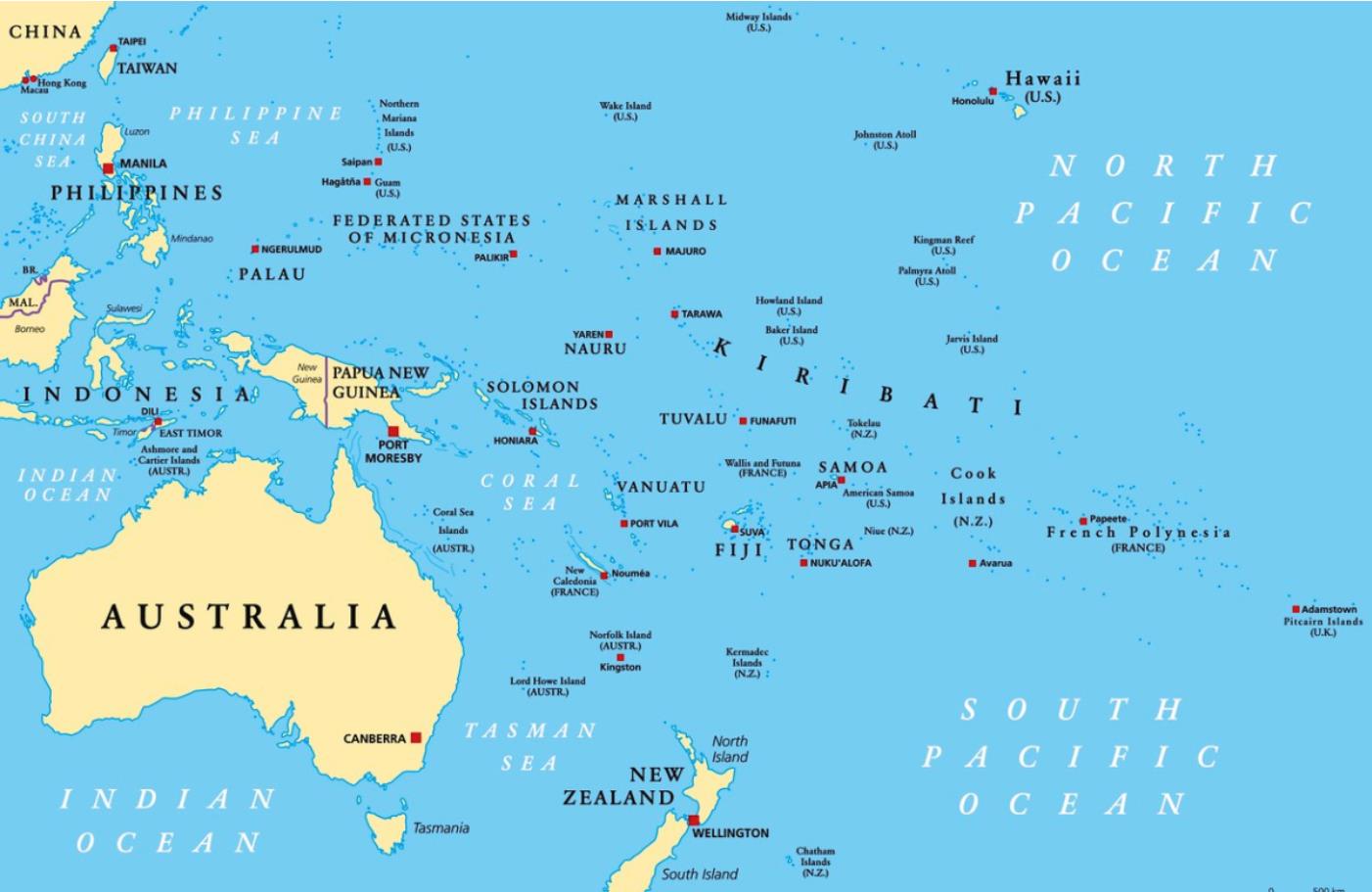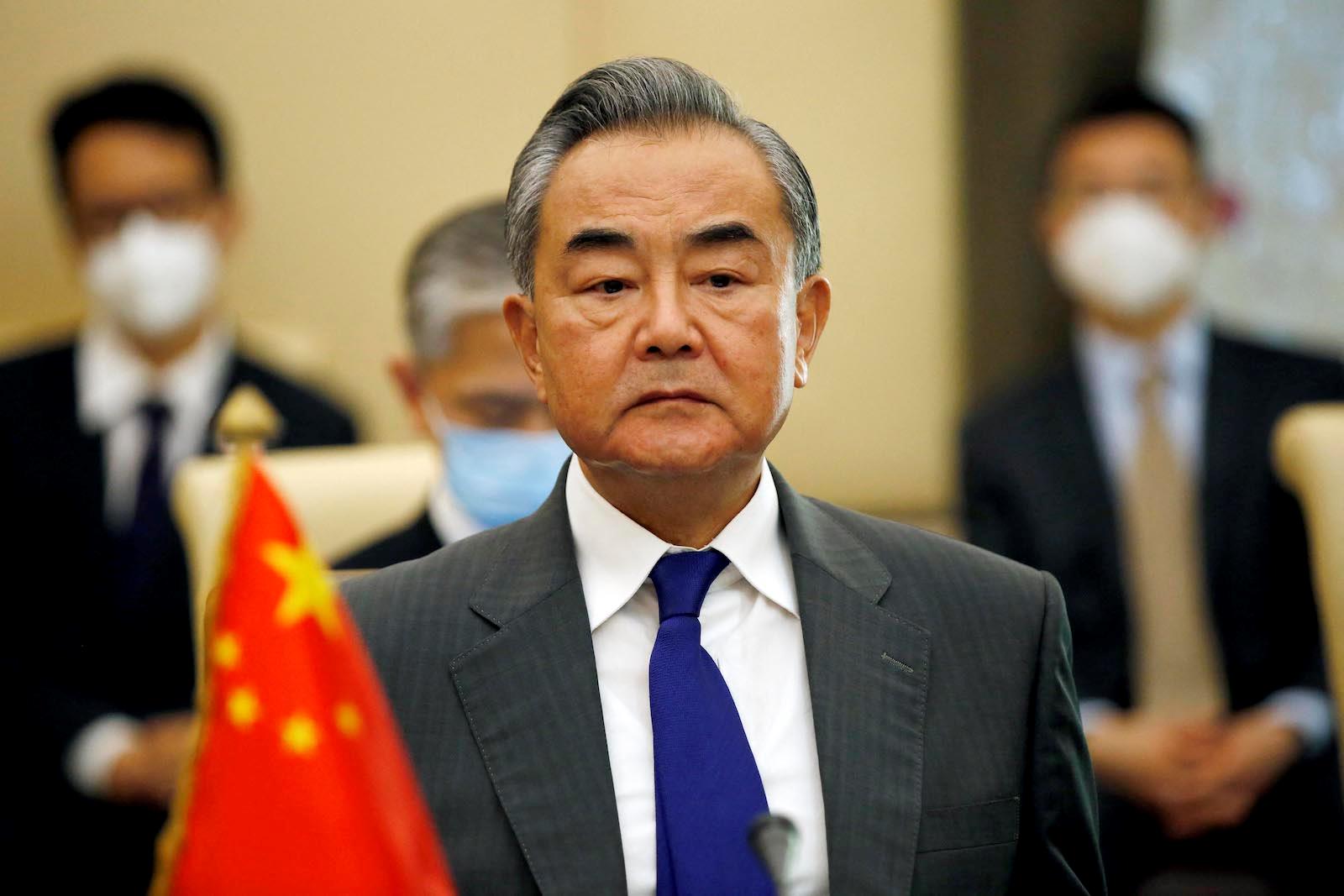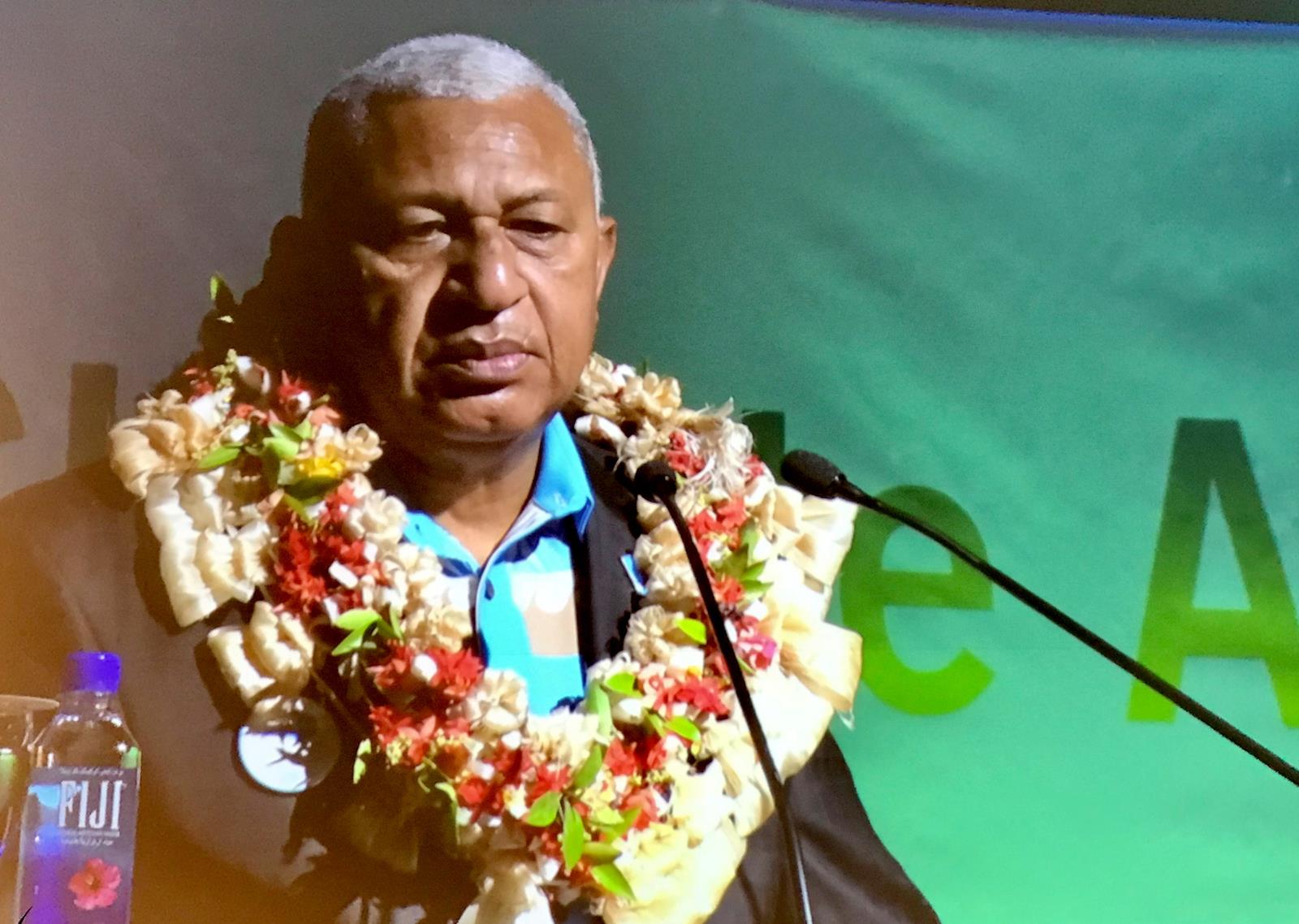(MENAFN- Asia Times)
China will try to strengthen its ties with 10 Pacific countries by offering them student scholarships, agricultural technology and access to its markets in return for their support of the“one China” policy.
After a 10-day trip to meet the leaders of the Pacific island nations, Foreign Minister Wang Yi told Xinhua on Sunday evening that China respected the countries' autonomy and would continue to enhance its cooperation with them.
Wang's comments came after the media reported last week that the Pacific countries refused to sign a security agreement with China as they were worried about being dragged into a fight between superpowers.
Meanwhile, military tensions in the East China Sea and the South China Sea increased as Canada and Australia accused the People's Liberation Army (PLA) of sending warplanes to harass their surveillance aircraft.
China's state media criticized the two countries for“complaining first while being the ones who are guilty in the first place.”
The United States has been increasing its efforts to strengthen its diplomatic and military relations with its alliance, particularly Japan, India and Australia, in the Indo-Pacific region in recent years due to China's rising influence in the South China Sea and its aggression against Taiwan.
The Biden administration said in its new Indo-Pacific strategy on February 11 that the intensifying American focus in the region was due in part to the fact that the region faced mounting challenges, particularly from the People's Republic of China (PRC).
US Secretary of State Antony Blinken said on February 12 that the US would re-establish a Solomon Islands embassy as it attempted to curb China's influence in the Pacific island nation. The US embassy there was closed in 1993.

A map of the South Pacific islands, Australia and New Zealand. Source: WikiCommons
Australia changes course
However, the US' move did not stop Solomon Islands' Prime Minister Manasseh Sogavare from signing a controversial security pact with China on April 20. The pact shocked the US, Australia and New Zealand, which claimed China could use the Solomon Islands to destabilize the Pacific region.
Then-Australian prime minister Scott Morrison faced questions over why he did not send officials to lobby against the deal.
On May 21, Labor leader Anthony Albanese claimed victory in the 2022 federal election and became the new prime minister of Australia. Albanese said Australia's relationship with China would remain a difficult one.
On May 24, he met with US President Joe Biden, Japanese Prime Minister Fumio Kishida and Indian Prime Minister Narendra Modi in Japan to discuss deepening their military relationships.
The Quad agreed to launch a new maritime surveillance plan called the Indo-Pacific Partnership for Maritime Domain Awareness (IPMDA), which will help the Pacific islands and countries in Southeast Asia and the Indian Ocean to track illegal fishing and other illicit activities in their waters in real-time.
Analysts said the plan would also help prevent PLA warships from disguising themselves as fishing boats to invade Taiwan.
During the Quad leaders' meeting, at least six Russian and Chinese military aircraft reportedly conducted a joint operation over the Sea of Japan, East China Sea and the Western Pacific.
On May 26, a Royal Australian Air Force P-8 maritime surveillance aircraft was intercepted by a Chinese J-16 fighter jet during a routine maritime surveillance flight in international airspace in the South China Sea region, according to a statement released by the Australian government.
Also on May 26, a Canadian surveillance plane was forced to change course as it was harassed by Chinese warplanes, the Canadian Armed Forces said on June 1.
Citing an unnamed source, the Global Times, a mouthpiece of the Communist Party of China (CPC), on Sunday criticized Canada for sending warplanes to the East China Sea and making provocations against China.

Chinese State Councilor and Foreign Minister Wang Yi. Photo: AFP / NurPhoto / Billal Bensalem
Battle of words over flights
It said Chinese aircraft dealt with their Canadian counterparts completely legitimately and what they did was within their rights.
The report also said the Australian P-8 could have trespassed into Chinese airspace or disrupted PLA maritime exercises in a dangerous manner.
While military tensions have increased between China and the West, Chinese foreign minister Wang Yi paid a 10-day visit to the Solomon Islands, Kiribati, Samoa, Fiji, Tonga, Vanuatu, Papua New Guinea and Timor-Leste and held video conferences with the Cook Islands and Niue between May 25 and June 4.
However, Wang failed to persuade the countries to sign a security and trade pact – the China-Pacific Island Countries Common Development Vision – at a meeting with his Pacific counterparts in Fiji on May 30.
On the same day, China said it was willing to enhance its cooperation with Pacific island nations across different areas including agriculture and aquaculture, natural resources, information technology, e-commerce and tourism.
It said it would allow the countries' agricultural products to access Chinese markets. Beijing also praised the Pacific nations for their firm commitment to the one-China policy.
It said it would take 24 concrete measures to support the Pacific countries in the coming few years. These included 2,500 government scholarships, 3,000 human resources traineeships, the deployment of 200 Chinese medical staff, some training programs for young diplomats and agricultural technicians and a student scholarship program in Tianjin.

Fiji Prime Minister Frank Bainimarama at an international climate conference in Denerau, Fiji, on October 17, 2017. Photo: AFP / DPA/ Christoph Sator
Wang defends trip
While Western media said Wang faced a diplomatic setback on his trip, he told Xinhua on Sunday that China and the Pacific nations had successfully reached a consensus to deepen pragmatic cooperation.
“The outside world has paid great attention to this trip to the South Pacific, and the response has been positive,” Wang said.“At the same time, there are also some discussions and suspicions, and some people even spread false information.
“China's cooperation with Pacific island countries is open, transparent and upright. It does not attach any political conditions, does not impose things on others, does not target any third party and does not seek so-called 'spheres of influence',” he added.
Wang said China was not a newcomer in the South Pacific region as it had developed diplomatic relations with Pacific nations for half a century.
He said China respected the island countries' autonomy and was willing to cooperate with Australia and New Zealand, instead of competing with them in geopolitics.
Read: China: Biden 'Indo-Pacific' strategy won't succeed
Read: Weighing and debunking Taiwan war scenarios
Follow Jeff Pao on Twitter at @jeffpao3
MENAFN06062022000159011032ID1104330400